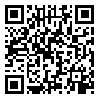Volume 7, Issue 1 (March 2025)
IEEPJ 2025, 7(1): 21-42 |
Back to browse issues page
Download citation:
BibTeX | RIS | EndNote | Medlars | ProCite | Reference Manager | RefWorks
Send citation to:



BibTeX | RIS | EndNote | Medlars | ProCite | Reference Manager | RefWorks
Send citation to:
Rahimivand M, Ahangari S, Hadidi Tamjid N. (2025). Exploring the Impact of Scenario-based Assessment and Dialogue Journal Writing Models on Developing Iranian EFL learners’ Writing Self-regulation Skills. IEEPJ. 7(1), 21-42. doi:10.22034/7.1.21
URL: http://ieepj.hormozgan.ac.ir/article-1-887-en.html
URL: http://ieepj.hormozgan.ac.ir/article-1-887-en.html
1- Department of English, Tabriz Branch, Islamic Azad University, Tabriz, Iran
2- Department of English, Tabriz Branch , Islamic Azad University, Tabriz, Iran ,Saeideh.Ahangari@gmail.com
2- Department of English, Tabriz Branch , Islamic Azad University, Tabriz, Iran ,
Abstract: (1663 Views)
Objective: Classroom-based assessment techniques like scenario-based assessment and dialogue journal writing aim to evaluate learners' linguistic abilities through hypothetical authentic language use within the assessment's context, fostering confidential and learner-centered interactions. The following study examined the effect of scenario-based assessment and dialogue journal writing on enhancing Iranian EFL learners' writing self-regulation mechanisms.
Methods: For this purpose, the researchers selected 60 EFL learners based on convenience sampling and divided them into two experimental groups and one control group randomly. The first experimental group received treatment through a scenario-based assessment model. The second experimental group underwent the treatment requirements of a dialogue journal writing model. The control group was instructed through the traditional teacher-centered method. All groups received pre-tests and post-tests of writing self-regulation skills. The collected data were analyzed through MANCOVA analysis.
Results: The findings showed that the scenario-based assessment group’s participants outperformed dialogue journal writing and control groups in writing self-regulation skills. It also revealed that the scenario-based assessment model more significantly improved motivational self-talk, knowledge rehearsal, and text processing.
Conclusions: The results of this study indicate that the scenario-based assessment can garner greater support and serve as an effective instructional and evaluation framework for instructors, educators, and stakeholders.
Methods: For this purpose, the researchers selected 60 EFL learners based on convenience sampling and divided them into two experimental groups and one control group randomly. The first experimental group received treatment through a scenario-based assessment model. The second experimental group underwent the treatment requirements of a dialogue journal writing model. The control group was instructed through the traditional teacher-centered method. All groups received pre-tests and post-tests of writing self-regulation skills. The collected data were analyzed through MANCOVA analysis.
Results: The findings showed that the scenario-based assessment group’s participants outperformed dialogue journal writing and control groups in writing self-regulation skills. It also revealed that the scenario-based assessment model more significantly improved motivational self-talk, knowledge rehearsal, and text processing.
Conclusions: The results of this study indicate that the scenario-based assessment can garner greater support and serve as an effective instructional and evaluation framework for instructors, educators, and stakeholders.
Keywords: Scenario-Based Assessment, Dialogue Journal Writing, Writing Self-Regulated Learning Skills
Type of Study: Original |
Subject:
Educational Psychology
Received: 2024/04/27 | Accepted: 2024/09/29 | Published: 2025/03/1
Received: 2024/04/27 | Accepted: 2024/09/29 | Published: 2025/03/1
Send email to the article author
| Rights and permissions | |
 |
This work is licensed under a Creative Commons Attribution-NonCommercial 4.0 International License. |







